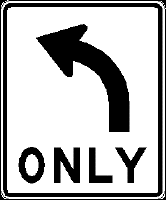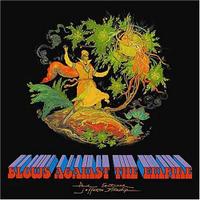 [Once upon a time, I saw the political spectrum as a circle. At the top-center sat a gray zone of liberal-conservative welfarism. Moving further left or right, you entered areas of increasing statism (communism or fascism) until both “wings” ultimately met in a broad region of libertarianism (voluntary, decentralized neighborhoods, both socialist and market). This circle helped me make sense of the world presented by modern politics and media — where both left and right extremes were bad, a mushy middle was the Establishment norm, and where I could call myself a radical right-wing libertarian and still link arms with many on the radical Left. Then Rothbard changed my notions of Left and Right. Konkin tinkered with my head. And in his 1975 book Dear America, Karl Hess pulled it all together. What follows is an excerpt from Hess’ book, unforgivably long out of print.]
[Once upon a time, I saw the political spectrum as a circle. At the top-center sat a gray zone of liberal-conservative welfarism. Moving further left or right, you entered areas of increasing statism (communism or fascism) until both “wings” ultimately met in a broad region of libertarianism (voluntary, decentralized neighborhoods, both socialist and market). This circle helped me make sense of the world presented by modern politics and media — where both left and right extremes were bad, a mushy middle was the Establishment norm, and where I could call myself a radical right-wing libertarian and still link arms with many on the radical Left. Then Rothbard changed my notions of Left and Right. Konkin tinkered with my head. And in his 1975 book Dear America, Karl Hess pulled it all together. What follows is an excerpt from Hess’ book, unforgivably long out of print.]
“My own notion of politics is that it follows a straight line rather than a circle. The straight line stretches from the far right where (historically) we find monarchy, absolute dictatorships, and other forms of absolutely authoritarian rule. On the far right, law and order means the law of the ruler and the order that serves the interest of that ruler, usually the orderliness of drone workers, submissive students, elders either totally cowed into loyalty or totally indoctrinated and trained into that loyalty. Both Joseph Stalin and Adolf Hitler operated right-wing regimes, politically, despite the trappings of socialism with which both adorned their regimes. Huey Long, when governor-boss of
Louisiana, was moving toward a truly right-wing regime, also adorned with many trappings of socialism (particularly public works and welfare) but held together not by social benefits but by a strong police force and a steady flow of money to subsidize and befriend businessmen.
An American President could be said to move toward the right to the extent that he tended to make absolutely unilateral political decisions, with no reference to Congress, for instance, or to the people generally, and when the legitimacy of the regime was supported or made real more by sheer force, say of police power, than by voluntary allegiance from the people generally. Such a regime, also, would be likely to suppress or to swallow up potentially competing centers of power such as trade unions. Major financial interests, however, if Adolf Hitler’s relations with industry, for example, can be considered instructive, would be bought off, rather than fought off, with fat contracts and a continuing opportunity to enrich their owners. Joseph Stalin, of course, had no problem with anything such as independent trade unions or business, since both had been killed off earlier.
“The
overall characteristic of a right-wing regime, no matter the details of difference between this one and that one, is that it reflects the concentration of power in the fewest practical hands.
“Power, concentrated in few hands, is the dominant historic characteristic of what most people, in most times, have considered the political and economic right wing.
“The far left, as far as you can get away from the right, would logically represent the opposite tendency and, in fact, has done just that throughout history. The left has been the side of politics and economics that opposes the concentration of power and wealth and, instead, advocates and works toward the distribution of power into the maximum number of hands.
“Just as the scale along this line would show gradations of the right, so would it show gradations of the left.
“Before getting to a far-right monarchy or dictatorship, there are many intermediate right-wing positions. Some are called conservative.
“Somewhere along the line, for instance, a certain concentration of power, particularly economic power, would be acceptable in the name of tradition. The children of the rich, characteristically, are accorded very special places in the regimes of the right, or of conservatives. Also, there is a great deference to stability and a preference for it rather than change — all other things being equal. Caution might be the watchword toward the center of this right-wing scale, simply a go-slow attitude. That is, admittedly, a long way from the far right and dictatorship, but it is a way that can and should be measured on a straight line. The natural preference for law and order that seems such a worthwhile and innocent conservative preference is from a political tradition that came to us from kings and emperors, not from ancient democracy.
“This hardly means that every conservative, if pressed, will go farther and farther right until embracing absolute dictatorship or monarchy. Far from it. It does mean to suggest only that the ghosts of royal power whisper in the conservative tradition.
“The left shows similar gradations. The farthest left you can go, historically at any rate, is anarchism — the total opposition to
any institutionalized power, a state of completely voluntary social organization in which people would establish their ways of life in small, consenting groups, and cooperate with others as they see fit.
“The attitude on that farthest left toward law and order was summed up by an early French anarchist, Proudhon, who said that ‘order is the daughter of and not the mother of liberty.’ Let people be absolutely free, says this farthest of the far, far left (the left that Communism regularly denounces as
too left; Lenin called it ‘infantile left’). If they are free they will be decent, but they never can be decent until they are free. Concentrated power, bureaucracy, et cetera, will doom that decency. A bit further along the left line there might be some agreement or at least sympathy with this left libertarianism but, it would be said, there are practical and immediate reasons for putting off that sort of liberty. People just aren’t quite ready for it. Roughly, that’s the position of the Communist Party today...
“At any rate, at some point on the spectrum there is the great modern American liberal position. Through a series of unfortunate but certainly understandable distortions of political terminology, the liberal position has come to be known as a left-wing position. Actually, it lies right alongside the conservative tradition, down toward the middle of the line, but decidedly, I think, to the right of its center. Liberals believe in concentrated power — in the hands of liberals, the supposedly educated and genteel elite. They believe in concentrating that power as heavily and effectively as possible. They believe in great size of enterprise, whether corporate or political, and have a great and profound disdain for the homely and the local. They think nationally but they also think globally and now even intergalactically. Actually, because they believe in far more authoritarian rule than a lot of conservatives, it probably would be best to say that liberals lie next to but actually to the
right of many conservatives.”
-----
Technorati Tags: New Libertarian, Movement of the Libertarian Left
 Gee, I'm a big comic book fan -- and an equally big fan of Joss Whedon's cult TV series Firefly (as anyone who's visited this blog more than twice ought to know by now). But until this afternoon, I hadn't heard anything about the three-issue Serenity miniseries now being published by Dark Horse Comics. The first issue was released and sold out about four weeks ago, but I was able to score a "second edition" of it plus the just-released second issue today. The third and final issue should be in comic shops in the next week or two, just prior to the nationwide release of Serenity, the highly anticipated Firefly spin-off movie, on September 30.
Gee, I'm a big comic book fan -- and an equally big fan of Joss Whedon's cult TV series Firefly (as anyone who's visited this blog more than twice ought to know by now). But until this afternoon, I hadn't heard anything about the three-issue Serenity miniseries now being published by Dark Horse Comics. The first issue was released and sold out about four weeks ago, but I was able to score a "second edition" of it plus the just-released second issue today. The third and final issue should be in comic shops in the next week or two, just prior to the nationwide release of Serenity, the highly anticipated Firefly spin-off movie, on September 30.






























